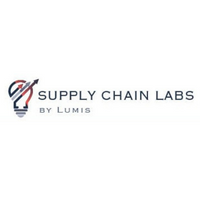
Supply Chain Labs
View Brand PublisherMeet the 5 startups optimising supply chain, warehousing, and logistics
The supply chain sector has seen revolutionary changes and tremendous growth in the past couple of years, and with the prolonged pandemic and the geopolitical realignments, companies and countries across the world have taken cognizance of supply chains being a competitive differentiator.
Supply Chain Labs (SCL), a fellowship fund that invests in supply chain focused startups, is thrilled to present the 5 startups that will be part of its Cohort 3.
Supply Chain Labs was started in 2019 with the mission of helping countries and companies optimise their supply chains. This is done by collaborating with and investing in 50 of the most high-potential supply chain-focused startups, and assisting them in building a strong foundation for getting to a market-leading position.
Each year, SCL selects a distinguished group of startups disrupting supply chain, warehousing, and logistics and provides them with not just capital but also guidance from industry stalwarts to help startups build a stronger foundation for scale.
As part of this journey, the Supply Chain Labs Fellowship Fund announced the five startups that emerged after several rounds of selection, including a rigorous jury, and will now be part of SCL Cohort 3.
Here are the five startups that have the potential to change the world and create exceptional value for all stakeholders:
1. Stylumia
An AI-driven demand-prediction engine that helps fashion and lifestyle brands forecast how much of a particular item will sell. has the potential to change the face of the fashion industry by optimising inventory levels for retailers across the globe.
2. Hopstack
An AI-powered warehouse management software, , has the potential to optimize warehouse operations globally, and help warehouses provide a significantly superior fulfilment experience to their clients.
3. Freshokartz
A full-stack agritech startup that helps farmers optimize their operations - from sourcing of inputs on time and cost-effectively, to crop advisory to optimize output, to market linkage for better realisation. has the potential to make a significant impact on the lives of farmers in India and other developing countries.
4. SparesHub
An online marketplace for automobile spare parts, sources automobile parts from OEMs and OES (original equipment supplier) and distributes them to garages, mechanics, and service centres via SpareHub franchise stores and the online platform. SparesHub has the potential to redefine the supply chain for automobile after-market service and address auto-industry challenges like spurious goods and the availability of long-tail inventory.
5.
By helping brands of perishable goods replenish stock in stores more frequently and cost-effectively, this intra-city logistics service for perishables has the potential to impact the dynamics of the fresh foods and eatables industry. Their value proposition is a very powerful one for brands of perishable goods as well as for the stores that stock them.
“Innovations in the supply chain can have a transformative impact on the country. I am therefore excited to guide emerging companies in building a robust foundation for scaling up and becoming category-defining leaders. The world needs their solutions,” said Bharat Moossaddee, former CFO of Mahindra & Mahindra and one of the LPs in SCL.
The prolonged pandemic and the geopolitical realignments made companies and countries across the world take cognizance of supply chains being a competitive differentiator and, in fact, in many cases, the core that will sustain their business. Supply chain resilience is a hygiene requirement second to none to exist and excel.
Corporations as well as smaller brands realise how vulnerable they are if their procurement and production destinations are choked, or if their warehousing and logistics are not digitally connected.
Additionally, changed market dynamics like omnichannel distribution require brands to be nimble and dexterous in their operations. This can only be achieved if their operations are digitally agile and able to absorb changing dynamics in as frictionless a manner as possible.







